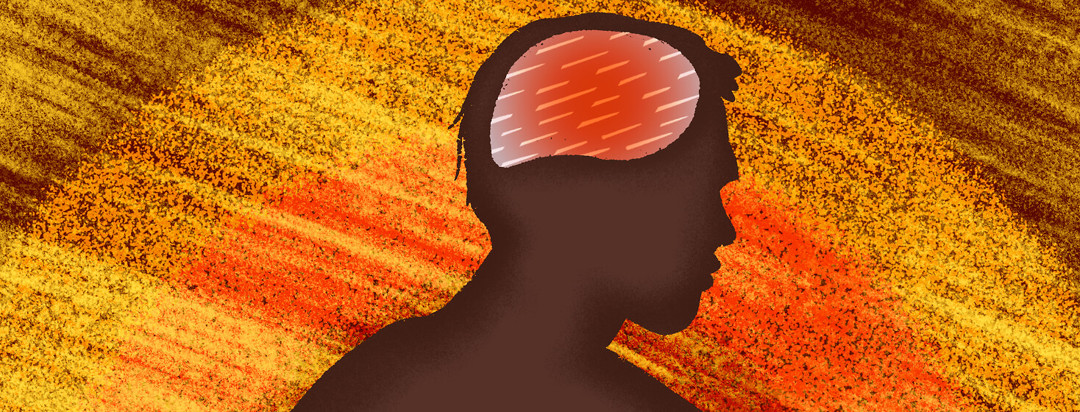Exploring Post Traumatic Stress Disorder in Cystic Fibrosis (Part 1)
Living with cystic fibrosis can be physically debilitating and mentally destabilizing. We know there is an elevated level of depression and anxiety within the CF population, but little research has been done around long-lasting traumatic stress responses.
After being medically diagnosed with posttraumatic stress disorder in 2015, I wanted to understand why it had been overlooked. It was a relief to finally realize that my illness was traumatizing - I wasn't weak, depressed, or a terrible patient. I was traumatized. The guilt finally started to lift like a grey, hazy mist on a foggy winter's morning.
What is PTSD and complex PTSD?
PTSD and C-PTSD were mainly associated with veterans returning from war or people recovering from catastrophic events. In recent years, doctors have established that PTSD and C-PTSD can, and often will, occur in people who are suffering from a chronic or acute illness like cystic fibrosis. These traumatic conditions often extend to their caregivers and families too.1
Adults or children who have repeatedly experienced traumatic events related to a chronic illness are at high risk of developing complex trauma responses. Events directly linked to their diagnosis, condition, lengthy hospital admissions, phobias, end of life care and transplant procedures are the obvious underlying causes.1
Complex PTSD is thought to be more severe if:2
- The traumatic events happen early in life
- Trauma was experienced for a long time
- The trauma is being re-experienced
- Being alone during the trauma
- The medical condition responsible for the trauma is still active
Is PTSD recognized by cystic fibrosis professionals?
Some clinical research was done around parents of children with CF, to examine how the on-going stress reflected on the their psyche.3
The biggest problem when looking for PTSD is that it can be masked by many other conditions. Nearly half the participants with PTSD and C-PTSD reported the presence of a chronic illness and were likely to exhibit other symptoms resembling generalized anxiety disorder or major depressive disorder which often masked a diagnosis of PTSD or C-PTSD.4
This sparked my curiosity. How many of us had some long-lasting emotional trauma that was not being acknowledged?
My search on social media
I did a quick scope on social media within the global CF community which received an overwhelming amount of responses. Many came forward to share their personal experiences around being plagued with traumatic memories related to CF.
Uncontrolled and overactive adrenal responses directly related to PTSD were reported by a small number of cystic fibrosis patients. Their brains fired off under attack signals which left them in a constant state of fight or flight. Others were avoidant of their symptoms and treatment. Nearly all were still terrorized by the presence of needle or procedure phobia.
Could this influence our overall health? Yes. It is well known that dips in mental health lead to dips in lung function, treatment adherence, and general wellbeing in CF patients.
What differentiates cystic fibrosis-related PTSD symptoms?
Re-experiencing and flashbacks
This is as scary as it sounds. Re-experiencing is a mental re-living of the traumatic event. Flashbacks and intrusive thoughts can occur at any time. These can be triggered by smells, sounds, sights, tastes, and touch. Re-experiencing tends to be notoriously triggered by clinic appointments, new diagnosis, hospital stays, needles and procedures.1,3
Some people recovering from a traumatic event are able to remove themselves from the trigger to work on healing. But when dealing with chronic health conditions like CF, it just isn't possible. Many patients not only re-live the experiences in memory but often need to re-experience them in real life repeatedly too. This is one of the most obvious things which can create complex posttraumatic stress disorder.5
Avoidance
To prevent being triggered, people avoid what they perceive can hurt them or haunt them.5 This one is particularly important when we look at the amount of CF patients who struggle with treatment adherence. It is often thought that lack of treatment adherence is related to time management, denial, anger, and frustration.6
Depression and mood fluctuations often play a part here too. Yet, unresolved PTSD isn't widely considered to be an issue although it is evident that could be playing a very large role in how well people are managing their treatment and coping with their cystic fibrosis.6
Being hyperalert
Being hyperalert is an obvious characteristic of PTSD. Something that makes managing this symptom more challenging when dealing with CF induced traumatic responses is that our "threats" can not be removed.5 The threat is an internal one, not an external one. It is the physical condition. CF is the threat.
What enhances our "worry meter" is we are taught to "watch" for changes to our health. Monitor our lung functions. Check our blood sugars. Notice our pain. Give examples of our breathlessness. We are surrounded by continuous threats and we are told to be hyper-aware of them - further triggering PTSD symptoms.
Read Exploring Post Traumatic Stress Disorder in Cystic Fibrosis (Part 2) here.
Have you experienced PTSD due to your cystic fibrosis?

Join the conversation